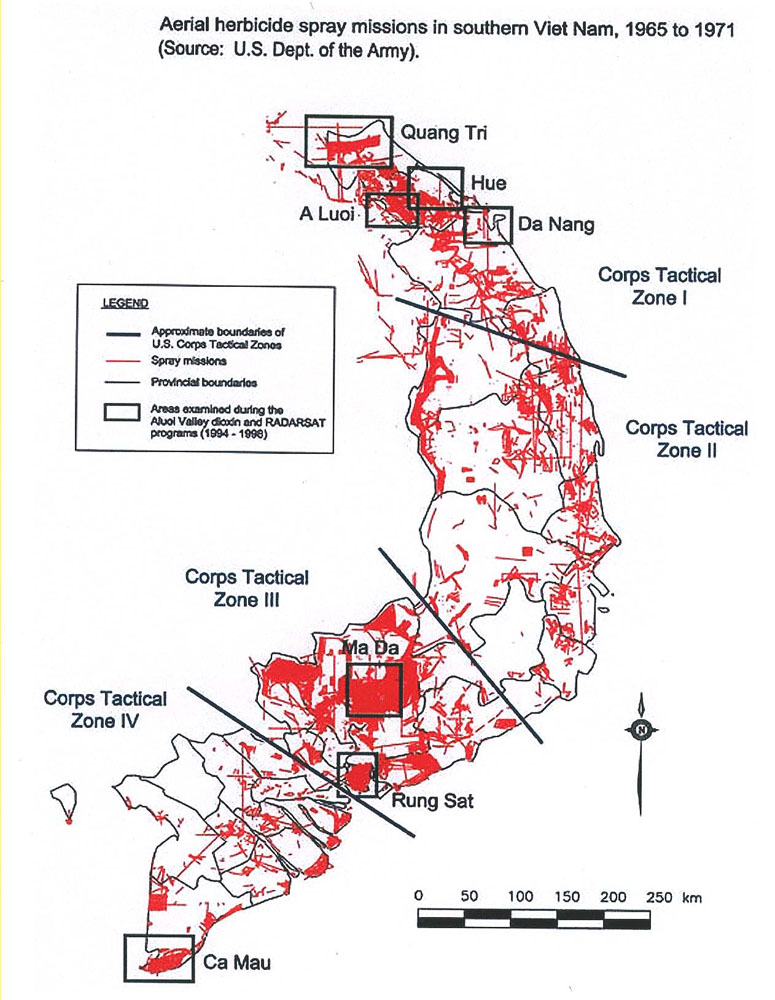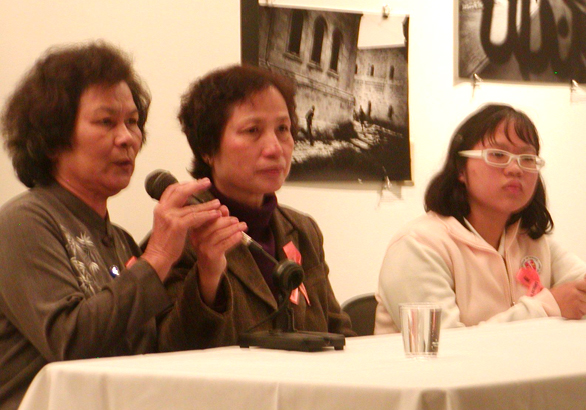Introduction
President Obama’s greatest foreign policy successes are found in the reports of the mass media. His greatest failures go unreported, but are of great consequence. A survey of the major foreign policy priorities of the White House reveals a continuous series of major setbacks, which call into question the principal objectives and methods pursued by the Obama regime.
These are in order of importance:
1) Washington’s attempt to push for a joint economic stimulus program among the 20 biggest economies at the G-20 meeting in April 2009;
2) Calls for a major military commitment from NATO to increase the number of combat troops in conflict zones in Afghanistan and Pakistan to complement the additional 21,000 US troop buildup (Financial Times April 12, 2009 p.7);
3) Plans to forge closer political and diplomatic relations among the countries of the Americas based on the pursuit of a common agenda, including the continued exclusion of Cuba and isolation of Venezuela, Bolivia and Ecuador (La Jornada (Mex. D.F.) April 20, 2009);
4) Weakening, isolating and pressuring Iran through a mixture of diplomatic gestures and tightening economic sanctions to surrender its nuclear energy program (Financial Times, April 16/17, 2009 p. 7);
5) The application of pressure on North Korea to suspend its satellite and missile testing program in addition to dismantling its nuclear weapons program. (Financial Times, April 13, 2009 p.4);
6) Securing an agreement between Israel and the Palestinian Authority for a ‘two state solution’, in which Israel agrees to end and dismantle its illegal settlements in exchange for recognition of Israel as a ‘Jewish State’ (Financial Times, April 13, 2009, p.5);
7) Pressuring the government of Pakistan to increase its military role in attacking the autonomous Northwest provinces and territories along the Pakistan-Afghan border insupport of the US war against Islamic resistance movements, especially among the Pashtun people (over 40 million strong), in both Afghanistan and Pakistan (FT April 23, 2009 p.3); and
8) Securing a stable pro-US regime in Iraq capable of remaining in power after a withdrawal of the majority of US occupation troops (FT April 8, 2009).
What is striking about Obama’s objectives is the continuities with the previous administration of GW Bush, even as the mass media proclaims ‘significant changes’. (American Conservative April 14, 2009)
Policy Continuities: Failures of Stimulus Proposals at the April 2009 G20 Summit.
Like his predecessor Bush, Obama’s first economic priority is to pour trillions of borrowed dollars into the financial system as opposed to directing state resources toward reviving popular demand, reconstructing the manufacturing sector, creating a universal health system and directly employing the 5 million workers unemployed in the last year. Obama’s economic regime is totally dominated by Wall Street bankers and completely devoid of any representatives from labor, manufacturing and the health sector (FT April 2, 2009 p11). In essence, Obama has reinforced and deepened the ‘finance-centered’ model of capitalist development, which demands that the G20 countries follow financial stimulus plans – ignoring job creation through the financing of public investments focused on manufacturing. For Obama, ‘economic stimulus’ means reconstructing the power of finance capital, even if it means running hung budget deficits, which undermine other public investments. The ‘theory’ justifying the finance-centered focus is based on the belief that the US world empire is built on the recovery of the supremacy of finance capital – to which the industrial powers should submit (FT April 15, 2009, p.9). The conflicts at the G20 summit and the ultimate failure of Obama to secure support for his so-called ‘stimulus’ proposal was that he was promoting a financial centered ‘stimulus’ while the rest of the economic powers – with the exception of the UK – were concerned with ‘stimulating’ manufacturing, employment and commodity exports (FT April 2, 2009 p.4). The pressures of labor and manufacturers in Europe – especially in Germany and France – have far more weight in shaping economic policy than in the United States (FT March 26, 2009 p. 1).
The incompatibility of the finance-dominated regime of Obama and European, Asian and Latin American regimes reflect the latter’s more economically diversified ruling class, has led to the White House failure to secure a ‘coordinated’ stimulus policy.
Summit of the Americas: Isolation and Divergences
Conflicts of interest prevented Washington from securing any favorable economic agreements at the ‘Summit of the Americas’ Conference in April. The breakdown of the US finance-centered empire and its negative impact on all of the countries of the Americas undermined Obama’s efforts for reassert US hegemonic leadership (see Economic Commission for Latin America – Report to Summit April 17-19, 2009). The White House already knew the futility of any effort to revive a regional free trade agreement. Worse still, Washington’s argument for the advantages of ‘globalization’ were seriously undermined by Obama’s promotion of ‘financial protectionism’ in which US subsidiary banks in Latin America were directed to channel their financial resources back to the home office, drying up financing and credit for Latin American exporters. In other words, under the stress of the economic depression, ‘globalization’ led to the reverse flow of financial resources out of Latin America, prejudicing US influence and leverage while increasing regional ties and economic nationalism among the Latin American countries.
The result was that the Obama regime’s financial-centered empire had nothing to offer and everything to lose in any deep diagnosis of the impact of the recession/depression. The While House had nothing to offer in the way of expanding markets, capital flows or in stimulating productive investments to create employment. In these dire circumstances, the Obama regime preferred vacuous platitudes and systematic evasions of the most pressing economic issues in order to create the illusion of ‘good feeling’ among the participants (La Jornada April 20 2009). Rather than ‘project power’ in the hemisphere, Washington was reduced to reiterating bankrupt policies justifying the Cuban embargo in splendid isolation (La Jornada April 17, 2009).
The decline of US power based on its crisis-ridden finance centered empire is evident in its inability to sustain its traditional client rulers or to destabilize adversarial presidents. Even as the Summit was transpiring, in Bolivia a group of armed mercenaries, contracted by US backed economic elites in the separatist province of Santa Cruz to overthrow the Morales regime, were captured or killed by the Bolivian military (La Jornada April 20 2009). After three years of US financing and deep involvement with regional elites engaged in political and economic warfare against Evo Morales, and after suffering several electoral defeats, Washington and its regional allies could only muster a tawdry hotel shoot-out between Eastern European contract hit-men and the Bolivian army, ending in ignominious defeat.
The political weakness of the Obama regime is even more evident in the major electoral defeats it has suffered in Ecuador, where President Correa was re-elected with over 52% of the vote – a 22% margin over the nearest pro-Washington candidate, Lucio Gutierrez (La Jornada April 27, 2009). In Nicaragua, Bolivia, Venezuela, El Salvador and Honduras, the electorate voted decisively for left and center-left candidates, defeating right-wing US-supported candidates. The only exception was Panama where a right-wing millionaire was elected in May 2009. Though few of the center-left regimes pursue economic-nationalist policies, they do exercise a degree of independence in their foreign and domestic policies, especially with regard to relations with Venezuela and Cuba, trade, investment, state intervention and opposition to the dictates of the IMF.
Moreover the financial collapse in the US and the accompanying economic depression has led to a major crisis and conflict between North and South American with profound long-term consequences. The implosion of cross-border lending resulting in US (and European) banks returning capital to their domestic markets is depressing regional and world finance for the foreseeable future (Financial Times April 30, 2009 p. 7). Wall Streets’ financial crash has dealt a strategic blow to financial ‘globalization’ (imperialism). Between April-December 2008 US financial institutions ‘repatriated’ $750 billion dollars from their overseas subsidiaries. Foreign holdings of US banks are shrinking as a share of their total balance sheets – especially hitting Latin American regimes dependent on US capital flows. US investors in Latin America, unable to secure credit, have curtailed their overseas activity.
The process of ‘de-capitalization’ of Latin America has accelerated with US and European ‘state-intervention’ of banks, which has led to ‘financial protectionism’ where the ‘state’ banks push for domestic lending at the expense of foreign operations (Financial Times April 30, 2009 p7). This especially harms countries like Brazil, Mexico and Argentina, where repatriating US (and Spanish) financial institutions own a significant percentage of the domestic banks. The withdrawal of capital to the imperial states, financial protectionism and the decline of US official financing means that Obama’s ‘recovery plan’ is based on the de-capitalization of Latin America and the drying up of credit for exporter/importers, exacerbating the recession.
The policy implications are readily visible: Obama has few economic assets to pressure Latin America and many liabilities to address. Given the low priority assigned to Latin Americca in the current crisis, Washington must rely on local elites, which have been weakened economically by Wall Street and the IMF’s declining presence and are now more dependent on state intervention to confront the drop in export market demand. Obama’s economic priorities and financial protectionist policies go directly against any ‘harmonization of interest’ and strengthen nationalist, regionalist and statist political and economic policies and governments in Latin America. The ‘historic movements’ in opposite directions between the US and Latin America are exacerbated by Obama’s commitment to military-centered empire building.
While Latin America’s civilian regimes are desperately looking for new markets, credits and investments to buttress their declining capitalist system and forestall domestic social challenges from below, Obama projects the US empire through militarism. Obama’s failed policies in Latin America are the result of structural relations dependent on financial markets (and their breakdown) and global militarism. Over time the diverging composition of regimes and socio-economic policies will become more acute as the recession deepens into a major depression in Latin America. One consequence of this divergence can be seen in the increasing trade between Latin America and the Arab countries, which has tripled since 2005 (Al Jazeera March 31, 2009).
The most striking indicator of the United States’ declining economic presence and political influence in Latin America is found in the trade figures of Brazil, Latin America’s biggest and most industrialized country. In April 2009, total trade between Brazil amounted to $3.2 billion dollars, while its trade with the US was $2.8 billion (Telegraph (UK) May 10, 2009). This was the second straight month that China surpassed the US as Brazil’s biggest trading partner, ending 80 years of US primacy. Just as the US pours hundreds of billions of dollars into military-driven empire building, China has steadily pursued its overseas economic empire via billion dollar trade and joint investment agreements with Brazil in oil, gas, iron ore, soya and cellulose. China has already displaced the US as Chile’s primary trading partner, and is increasing its share of trade with Venezuela, Bolivia, Ecuador and Argentina – and even with staunchly US clients, like Colombia, Peru and Mexico.
As regional wars and economic depression cause the US to retreat from Latin America, the region’s ruling classes look to Asia, especially China, to meet their trade and investment requirements.
Sooner rather than later, issues of superior economic production and growth trump pure military power in shaping the hierarchy of nations in the world economy. This process of an upwardly mobile economic power displacing a crisis-ridden world military power as the chief interlocutor is now being played out in Latin America. While the transition may have begun well over a decade before his administration, the policies of President Obama are accelerating the shift in Latin America away from US dominance.
NATO Conference: Obama’s Military Escalation in Search of Allies
On April 4, 2009 Obama attended the NATO Conference in Strasbourg in order to push for allied support for expanding the war in South Asia. South Asia, and especially the Afghan-Pakistani (Af-Pak) border regions, has become the centerpiece of Obama’s foreign policy. This is the area where the US is most vulnerable to strategic military and political losses and where he has had the most difficulty winning material and man-power support from the NATO allies. From the first day in office, Obama has emphasized the ‘strategic’ importance of winning the war in Afghanistan, reversing the advances of the Taliban and other resistance fighters and establishing a stable pro-Washington client regime in Kabul. To that end, Obama has announced a massive escalation of combat troop deployment (over 21,000) to Afghanistan, an additional $80 billion dollars in funding to the already $750 billion dollars allocated for the Pentagon, and has pursued an aggressive epolicy of pressuring European and Asian allies for substantial addition of combat troops and financial aid. At the April NATO conference, Obama’s proposals were bluntly rejected (Financial Times April 2, 2009 p7). The principle allies agreed to send 5,000 additional troops in temporary and non-combat roles, including 3,000 to ‘monitor’ elections in August 2009 and then to withdraw; two thousand to act as trainers and ‘advisers’ in non-conflict-ridden surroundings (Financial Times April 8, 2009 p.2).
What Obama fails to recognize is that the NATO countries do not consider Afghanistan an area of strategic importance to European security. They do not see the forces engaged as a threat to their safety; they do not see the prospect for a quick, low-cost victory. They do not relish following Obama’s proposed to extend the war into Pakistan – thus multiplying resistance to his plans. They do not want to alienate the vast majority of their own population and destabilize their own power.
European and most Asian allies are not willing to pour scarce resources and military personnel into a losing war, in a non-strategic region at a time of deepening economic recession. Obama on the other hand, following Bush and various other predecessors, and embedded in military-driven empire building, talks diplomacy while vigorously pursuing wars of conquest. His attempts to elevate the local conflict into a threat to world security based on the presence of a tiny number of Al Queda fighters in the mountains of the Hindu Kush, is hardly convincing. Obama’s failure to recognize that the Taliban and other groups have access to vast contiguous and porous borders with ethnic, clan and religious allies capable of sustaining prolonged guerrilla warfare, leads him to extend the frontiers of warfare and escalate the number of US troops. The expansion of the war in turn multiplies enemies and armed recruits. In Pakistan, this creates a wider swath of armed political opposition, which undermines Obama’s client in Islamabad (Financial Times May 6, 2009 p.1; see also Gareth Porter, “Errant Drone Attacks Spur Militants in Pakistan IPS April 16, 2009). Under strong pressure from the White House, Pakistan launched a major military campaign in the Swat region causing the mass flight of 2 million refugees and failing to defeat the Taliban.
Pouring billions of dollars into a prolonged colonial war with little possible economic gain at a time when GDP is declining by 6% and exports by 30% demonstrates the continued centrality of military-driven empire building and Obama’s role as ‘willing executioner’ (BBC News April 2, 2009).
The divergence between Europe/NATO and the US/Obama is structurally rooted in their conflicting visions of world power: The former emphasize financing their economies to recover and expand exports versus the latter, which operates under the delusion that prolonged colonial wars in remote regions of the world are essential for the ‘stability’ of world capitalism. Obama’s failure to secure NATO support for the Af/Pak expansion underlines his complete political and military isolation in one of the primary areas of his administration’s policy goals. This means that the US will shoulder the entire cost of a war in Afghanistan, which has spilled over into Pakistan, and bear worldwide condemnation as thousands of civilian casualties mount and millions of refugees flee the air and ground wars (BBC News May 7, 2009).
Iran: The Zionist Presence and Lost Opportunities
Obama’s stated policy approach to Iran was to ‘turn a new page’, open negotiations without prior conditions in order to secure an agreement to end Iran’s alleged nuclear weapons program, and its alleged support for ‘terrorist’ organizations, namely Hamas and Hezbollah. In addition, Obama hopes to secure co-operation in the US war in Afghanistan as well as propping up the Maliki client regime in Iraq (Financial Times March 6, 2009 p. 5).
From the very start, Obama’s policy got off on the wrong foot. He appointed two of the most pro-Israel and virulent enemies of Iran to key posts in Treasury and the State Department. Stuart Levey was reappointed as Under Secretary for Terrorism and Financial Intelligence in the Treasury Department and Dennis Ross (often called ‘Israel’s Lawyer’) has been appointed the State Department’s point-man on Iran. Stuart Levey has led a world-wide crusade of intimidation and coercion against any business, bank or oil company that has any economic dealings with Iran. Ross, who left an Israeli government-funded think tank to take up his new position in the Obama Administration, endorsed a document in late 2008 supporting the ‘military option’ against Iran. Ross and Levey are hardly likely to ‘open a new page’ in US Iranian relations. More to the point, they fit in with a bellicose policy advocating greater confrontation and increasing the likelihood of a new US-Middle East war.
The appointment of Hilary Clinton as Secretary of State will not favor an opening to Iran. She is on public record as advocating the ‘obliteration’ of Iran during the Presidential campaign in 2008 and now in office backs ‘crippling sanctions’ for force Iran to dismantle its nuclear energy program. Her approach follows closely the script of the previous Bush Administration (Financial Times April 23, 2009 p.3).
The Obama regime has not pursued ‘negotiations’ – instead it has been actively engaged in securing tougher sanctions against Iran while dictating the outcomes of any meeting with Tehran.
Under the guiding hand of the Israel-First lobby AIPAC, Congressional leaders of both parties are backing new and harsher sanctions against companies, “including Lloyds of London, Total (France) and British Petroleum unless they end their involvement in the export of refined oil to Iran or the construction of refineries in that country” (Financial Times April 23, 2009 p.3). Vice President Biden, in attendance at the annual Washington DC AIPAC Conference (May 1-3, 2009) supported war-like sanctions against Iran. Clearly Obama’s conciliatory rhetoric is in direct contradiction with his hard-line appointments and the harsh sanctions his regime pursues. Obama’s appointment of hard-core Zionists linked directly to Israel to strategic positions reflects the powerful influence which the Zionist Power Configurations exercises over strategic Middle East issues. As a result, Obama’s policy toward Iran is skewed in the direction of serving Israel’s military interests rather than the broader economic and strategic interests of the US empire (Financial Times February 24, 2009 p. 13).
Obama is pursuing a policy of ‘negotiations’ on exclusively Zionist terms: By demanding Iran surrender its internationally recognized and closely regulated program of nuclear enrichment and abandon strategic allies and principles of solidarity with the rights of the Palestinian people or face a US economic blockade, the White House is rejecting any possibility of a peaceful negotiated settlement.
In pursuing an iron-fist policy toward Iran to satisfy the demands of the Zionist Power Configuration acting on behalf of Israel, Obama is missing major diplomatic, economic and political opportunities to stabilize US imperial interests in the region. Through a process of give and take, Washington could secure Iranian co-operation in stabilizing Iraq and Afghanistan. In the past Iran has demonstrated its willingness to support US puppet rulers in Iraq and Afghanistan. In the case of Afghanistan, Iran directly aided the US occupation by attacking fleeing Taliban forces in the Western frontier regions. In contrast, Washington’s close relation with Israel strengthens the Taliban in Afghanistan and Muslim resistance to its occupation of Iraq.
While opposing the Israeli government policy of dispossession of the Palestinians, Iran has declared its willingness to accept a ‘two state solution’ if “that is what the Palestinians want”. The new far-right Israeli regime of Netanyahu/Liebermann, backed by the major American Zionist organizations, openly rejected a ‘two-state solution’, in repudiation the public position of the Obama government during his May 18, 2009 Washington meeting with Obama (BBC News May 19, 2009).
The US National Intelligence Agencies published a report in November 2008, which publicly refuted Israel’s claim that Iran is engaged in weaponizing its enriched uranium. On the ground investigations by the United Nations and international inspectors from the International Atomic Envery Agency, found no evidence of an Iranian nuclear weapons programs (IAEA Report On Iran February 19, 2009). By choosing to endorse Israel’s unfounded claims of an ‘existential threat’ from Iran, the Obama Administration has become an accomplice in Israel’s overt preparations for war against Iran. By refusing to use the findings of the international inspectors and its own intelligence agencies to come to terms with Iran’s nuclear-energy program, Obama runs the risk of becoming embroiled in a devastating war provoked by the government of Israel.
In a time in which the US exports have declined by over 30% in the first quarter of 2009 and the economy is mired in a prolonged deep recession, the Obama regime prioritized military relations with Israel on highly unfavorable terms. In this regard, overall economic losses from Obama’s policy of exclusive dealings with a minor economic player like Israel – has led to the losses of many billions of dollars of potential trade with Iran (BBC News April 29, 2009). Unlike the highly unfavorable US trade balance with Israel and the monstrous $30 billion-dollar ‘aid’ handout to the Jewish State, Iran offers a major investment outlet and lucrative market for US petroleum, agro-business, chemical and financial enterprises.
By following Israel’s blockade and boycott policies against duly elected Arab leaders, especially Hamas in Gaza and Hezbollah in Lebanon, Washington supports harsh corrupt dictatorships in the West Bank, Egypt and Jordan simply because they are allied to Israel. If, as the Obama regime claims, electoral processes will stabilize the region, then its commitments to Israel and its allies is destabilizing the region.
Instead of pursuing new policies toward Iran designed to secure imperial interests in the region, the Obama regime chooses confrontation which undermines its ‘conciliatory rhetoric’ and, worst, has led to increasing tensions. New sanctions against gasoline exporter could provoke a new, expanded war, which will surely sent the US into an even deeper depression.
North Korea: The Unmasking of a Policy
The Obama regime has undermined the tentative nuclear disarmament agreements reached between the Bush Administration and the North Korean Government. The original agreement was based on reciprocal concessions, in which North Korea agreed to dismantle its nuclear weapons program in exchange for economic and energy aid from the US, Japan, China, South Korea and Russia. The North Koreans complied with the agreement, but the economic aid was not forthcoming, in large part because of demands by the US to include intrusive inspections (Financial Times April 15, 2009). The incoming Obama administration did not take any initiative to move aid programs forward. On the contrary, in response to an experimental rocket launch of a satellite, Secretary of State Hilary Clinton called for and secured a condemnation of North Korea’s legal right to space technology and called for the implementation of new economic sanctions (Financial Times April 13, 2009 p. 4). These harsh reprisals caused the North Koreans to end negotiations and to re-start their nuclear weapons program, raising military tensions in the peninsula and undermining the peace process (Al Jazeera April 14, 2009). In the brief period of three months, the Obama White House has reversed almost a decade of peace negotiations adding a new arena of military confrontation.
Afghanistan-Pakistan: Extending Warfare and Destabilizing a Client
In response to the resurgence of the Afghan resistance and the expansion of its influence beyond its southern strongholds, Obama opened new fronts of conflict in Pakistan by engaging in systematic bombing of villages and communities. As a result, Pakistani fighters and their Afghan allies have drawn increasing popular support extending their influence throughout the Northwest Territories. By pressuring the weak and unpopular Zadari regime to intensify military operations against Pakistanis opposed to the US bombing raids, the Obama regime has eroded what little support it had within the state apparatus (Financial Times April 2, 2009 p. 7). Over 2 million Pakistanis in the region have been driven from their homes by the military offensive (BBC News May 19, 2009) Obama’s Pakistan policy is an extension of its failed Afghan military strategy of targeting entire civilian areas (in this case the over 40 million strong Pashtuns) influenced or controlled by the anti-US resistance in the hope of eliminating some Taliban fighters among the thousands of civilian deaths. The result is predictable: The Pakistan Army, the main prop of the weak US client President Zadari, becomes increasingly compromised as a tool for furthering US colonial war aims and surrendering sovereignty in the face of systematic US cross-border attacks. By forcing the divided and over-extended Pakistani regime to engage in large-scale warfare against its fiercely independent citizens in the Northwest Territories, Pakistani cities and towns will have to contend with the catastrophe of over 2 million internal refugees driven from their homes and communities. Obama increases the possibility of a military revolt by nationalist-islamist soldiers and officers, which would shift the entire balance of power in the region (and beyond) against Washington (BBC News May 8, 2009). Instead of ‘containing’ and limiting the area of combat in Afghanistan, Obama’s Pakistan policy has widened the front and implicated a large but fragile client state in an extended war which could bring about its downfall – not unlike the overthrow of the Shah of Iran (Financial Times April 27, 2009 p.5).
Obama’s escalation in Afghanistan precludes a negotiated national settlement with the Taliban, which confines it to Afghanistan, in exchange for limiting its role as a safe haven for Al Queda. Under increased US attack, the Taliban have internationalized their fight beyond their contiguous borders with Pakistan raising the specter of the US extending deeper into that country in support of their failed client in Islamabad.
Israel-Palestine Policy
White House policy toward the Israeli occupation of Palestine has been characterized by ritual reiteration of policy ( a ‘Two-State Solution’), indecisive and inconsequential attempts to formulate a coherent strategy and capitulation to Israel’s continued territorial expansion (BBC News April 18, 2009). Obama is faced with an openly annexationalist newly-elected far-right government, which rejects even the language of a ‘Two-State Solution’ in direct repudiation of his stated policy (BBC News April 1, 2009). Washington passively submits to Israeli rebuffs. Obama’s Middle East policy appointees from top to bottom are mostly Israel-Firsters. The Obama regime and the Democratic Party leadership in the Congress are indebted to the Zionist lobby, which rejects any attempt to even ‘pressure’ Israel – thus disarming any of the possible economic or military levers which could be used to pry concessions from the Netanyahu-Leiberman regime. Worse still, Washington supports the Israeli blockade of Gaza ruled by the democratically elected Hamas government in power, thus strengthening Israel’s iron grip on the Palestinians.
One of President Obama’s most egregious foreign policy failures took place during his May 18, 2009 meeting in Washington with Israeli Prime Minister Benyamin Netanyahu. After having made as Israeli-Palestinian ‘two-state’ settlement one of his major foreign policy goals, Obama failed to even secure a verbal commitment from the Israeli extremist leader (BBC News May 19, 2009). After 4 hours of discussion, Netanyahu rejected Obama’s offer to consider a time limit on diplomatic overtures to Iran (with the implicit threat of a military option) in exchange for the Likud Prime Minister mouthing the ‘three words’: ‘two state solution’! Worse still from the White House view, Natanyahu insisted that any negotiations with the Palestinians were conditional on their recognition of Israel as a Jewish State, thus disenfranchising the 1.5 million Palestinian Muslim and Christians who remained after the mass expulsions.
As if to flaunt his disdain for Obama’s call for a freeze on new settlements, Netanyahu’s regime accelerated plans for 20 new Jewish housing settlements in the occupied West Bank – precisely on the day of their meeting. Worst of all, Obama came out of the meeting displaying his utter impotence – he could not even make a ‘show’ of having any influence on the extremist Jewish Prime Minister. Netanyahu’s brazen and public repudiation of Obama was based on his clear understanding that the power of the US Zionist Power Configuration in Congress and in the Executive branch guaranteed that Obama would not counter Israeli extremism by threatening to decrease US financial or military aid to the Jewish state. After weeks of rumors and stories of Obama’s ‘willingness’ to confront or pressure Netanyahu to accept a two state solution, the end result was a humiliating public debacle in which Obama secured absolutely nothing.
Following his meeting with Obama, Netanyahu (the visitor) went to the US Congress with his power base among a huge majority of members of the House and Senate and top Zionist Jewish leaders, where almost the entire elected US representative body re-affirmed its unconditional support for Israeli policy – strictly on Netanyahu’s terms. The impotence and failings of President Obama in his dealing with Netanyahu was not lost on the entire world (especially the Arab world). Hamas Spokesman, Fawzi Barhoum summed up the general perception thus: “The statements (about a two-state solution) by Obama are nothing but wishes on which we do not much count” (Al Jazeera May 19, 2009).
The Obama reigme ‘immersion’ in Zionist-Israeli politics blinds it to the favorable opportunities for a grand accord in the region. Hamas leaders have shut down all rocket retaliatory attacks on Israel and called for a 10-year cease fire (The New York Times May 4, 2009). The Arab League (including the Gulf States) has reiterated its willingness to recognize Israel and open diplomatic relations in exchange for an end of the occupation of the West Bank and blockade of Gaza.
The European Union has opened dialog with Hamas and Hezbollah while postponing extending ‘special’ economic status to Israel. Even Iran has agreed to accept a Palestinian settlement based on the Two-State Solution. Faced with major shifts and concessions, the Obama regime remains impotent It is unable to put any muscle behind its proposals; it struggles even to set conditions for the resumption of peace negotiations. In the meantime, the Zionist Power Configuration inside and outside presses forward with new and more dangerous sanctions against Iran. During the AIPAC Conference in Washington (May 1-5), six thousand Israel-Firsters set their goal on securing Congressional majorities in favor of provocative blockades and sanctions against companies which export refined petroleum products into Iran (Jerusalem Post May 1, 2009). The Iran Refined Petroleum Sanctions Act (IRPSA) currently in the Congress and authored by AIPAC operatives is viewed as a weapon the crush the Iranian economy and overthrow the government. By attempting to entice AIPAC and Israel with the claim that a peace agreement with Palestine would lead to a ‘consensus’ to confront Iran, the Obama regime surrenders its diplomatic option to Iran in favor of Israel’s militarist approach – without securing any changes in its policy toward Palestine.
Conclusion: Consequences of Obama’s Failed Policies
Early on the Obama regime’s foreign policy has suffered a series of important set-backs on major policy issues.
Its G20 economic initiatives to secure or support proposals to coordinate stimulus policies based on financial bailouts and larger deficits were rejected. The re-vitalization of the IMF via an injection of $750 billion dollars was not welcomed by the ‘emerging market’ countries because of the IMF’s harsh conditions. The NATO summit spurned Washington’s demands for more combat troops to Afghanistan. Of the 5000 troops promised, three-fourths are to serve for the duration of the Afghan Presidential election (August 2009) and the rest as trainers and advisers far from the frontlines.
The Summit of the Americas was a fiasco for Washington. It was completely isolated in its defense of US policy toward Cuba, the Cuban Embargo and its designation of Cuba as a ‘state supporter of terrorism’. Obama offered nothing in the way of new policies in the face of the US-induced regional economic recession. At the same time the Latin American countries turned elsewhere – to Iran and China, as well as within the region, for opportunities to stimulate their economies. Obama’s bellicose posturing toward North Korea reversed 6 years of negotiations, resulting in the revival of tensions and the reassembly of Pyongyang’s nuclear weapons program. The escalation of the US/NATO war in Afghanistan and its extension into Pakistan undermines US clients in the region and makes it likely that the US military will find itself in an unending colonial war with no possibility of a victory.
Obama’s deep ties to American Zionist policies and organizations and their loyalties to the new far right wing Israeli annexationist regime precludes the pursuit of any policy which could open the way toward a ‘two-state’ resolution of the conflict. The hard-line White House position of escalating sanctions against Iran and the buildup of Israeli long-distance offensive weapons precludes any meaningful new initiatives toward Tehran (Financial Times March 23, 2009 p.3). The result of these failed policies is that Washington is increasingly politically isolated: Alone in fighting wars in Sough Asia; alone in aiding and abetting Israeli intransigence; alone among its fellow nations in the Western Hemisphere in its imposition of an embargo against Cuba. Political isolation means the political and economic costs of Obama’s military-driven empire building will be borne almost exclusively by the US Treasury and citizenry – at a time of unprecedented peacetime deficits and a deepening recession.
Obama’s focus on foreign military adventures, domestic financial bailouts and promoting the IMF has caused the countries of Latin America to turn away from their big traditional partner in Washington and sign up for major trade and investment agreements elsewhere. Brazil welcomed a hundred member delegation of business leaders form Iran, headed by its Prime Minister and composed of a wide array of business and banking leaders to seal multi-billion and co-investment deals. In late May, President Da Silva promoted a big increase in trade and investment with its biggest trading partner - China. The response by Secretary Clinton was pathetic: Instead of recognizing the economic eclipse of the US and seeking to increase the economic presence, she cited the threat of Iranian terrorism – among oil, agribusiness and banking executives (www.presstv.com May 2, 2009).
Obama’s continued backing for rightwing regional leaders in Bolivia and Ecuador against reformist Presidents, has contributed to the latter repeated electoral victories and the political isolation of the US. Obama’s rhetorics of ‘opening up’ to Venezuela, accompanied by harsh attacks on the dangers of ‘Chavismo’, including unfounded charges of its complicity in drug trafficking, has led to Venezuela’s growing trade and joint investment links with China, Iran and Russia..
Failed policies have consequences. The pursuit of long-term large-scale overseas military commitment in a time of economic depression is self-destructive, self-isolating and doomed to failure. Satisfying Israeli illegal colonial aspirations and military goals sacrifices hundreds of billions of dollars in trade with Iran, the Gulf States and South Asian economies.
The greater problem is not that the Obama regime is pursuing wars that will lead to defeats, but that the entire notion of pouring resources into military-driven empire building at a time of deepening recession is leading to hundreds of thousands of deaths and millions of refugees throughout the world, while destroying the livelihoods and social safety new of millions of American citizens.











